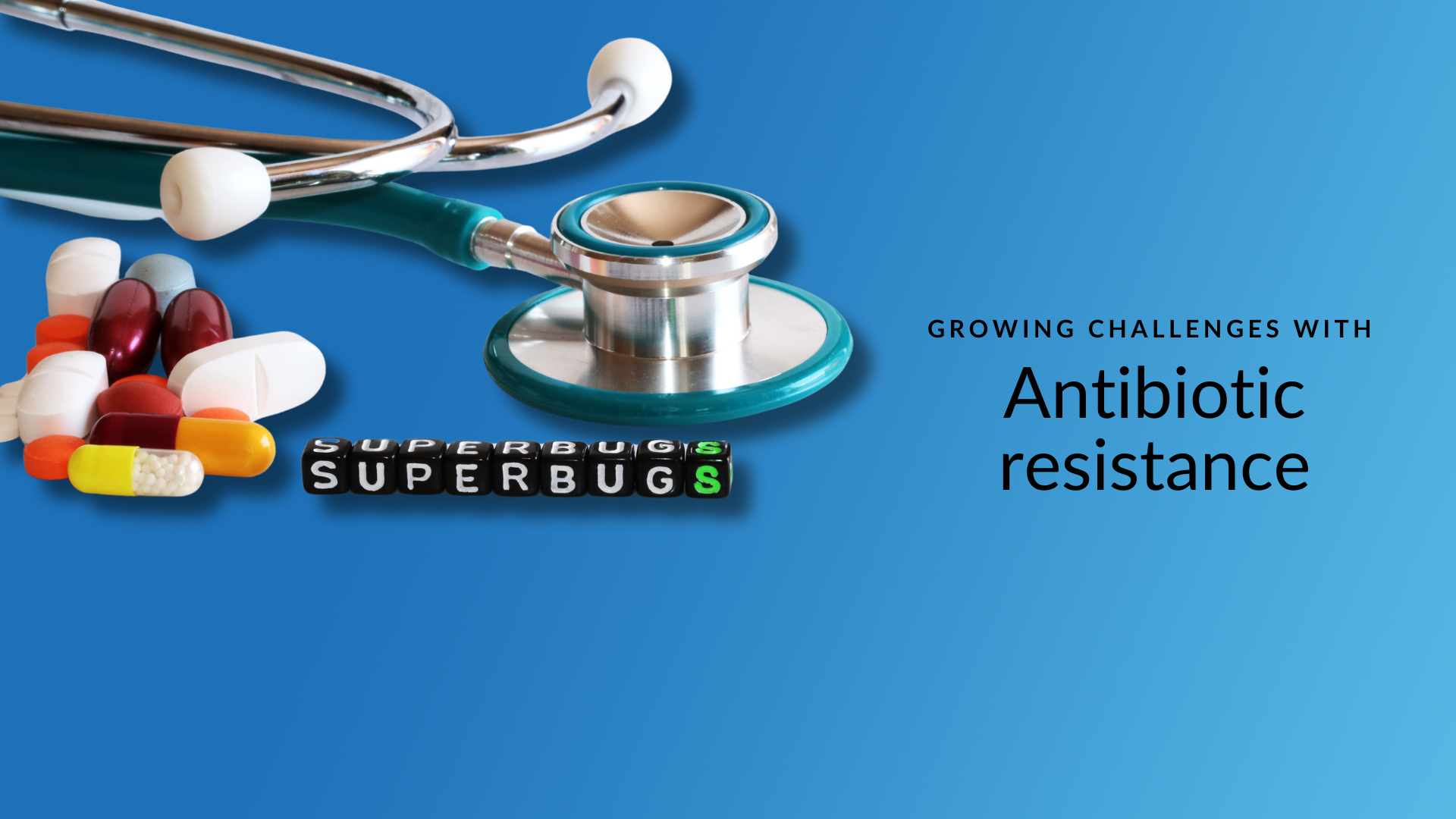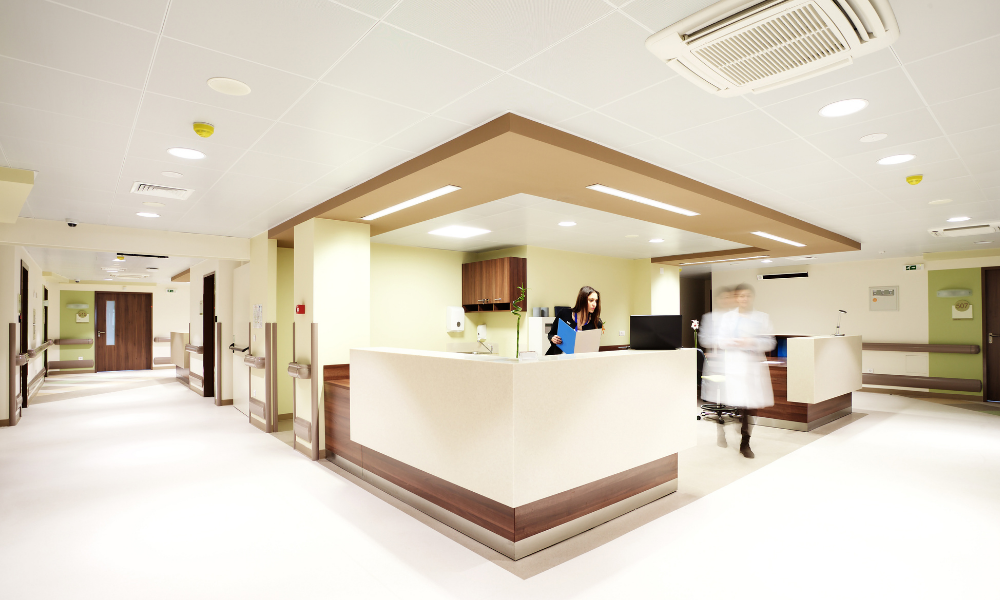Antibiotic resistance is one of the biggest challenges in modern healthcare. Resistant bacteria make infections increasingly difficult to treat, leading to longer hospital stays, higher healthcare costs, and increased mortality rates. At BModesto, we recognize that we are just a small part of a complex system. Nevertheless, we do your utmost to contribute, by supporting the stable availability of essential antibiotics and reducing shortages wherever possible.
The challenges: Antibiotic resistance and medicine shortages
Antibiotic resistance primarily arises from the misuse or overuse of antibiotics. According to the World Health Organization (WHO), resistance is among the top ten threats to global public health. The key factors contributing to this growing issue include:
- Overuse in healthcare
- Use in livestock and agriculture
- Poor hygiene and sanitation
- International travel and globalization
- Lack of new antibiotics
Antibiotic resistance
A primary care antibiotics study by Nivel among Dutch general practitioners found that, while they generally follow guidelines well, there are significant variations in adherence for common diagnoses such as middle ear infections and urinary tract infections. Many factors influence antibiotic prescribing, including assumed patient expectations and the pressure on general practitioners due to a busy waiting room. As a result of that, it limits the time available for discussions about whether or not to prescribe antibiotics, according to Nivel.
In low- and middle-income countries, the mentioned key factors may have an even greater impact. Heiman Wertheim, head of department and professor of medical microbiology at Radboudumc, states that improving and expanding existing infection prevention methods—such as hand hygiene, access to diagnostics, regular cleaning and sterilization of medical equipment, availability of safe drinking water, effective sanitation, and childhood vaccination—could prevent over 750,000 deaths annually related to antimicrobial resistance (AMR) in these countries.

Medicine shortages
Another major factor contributing to antibiotic resistance is the shortage of crucial medicines. Without a stable supply of medications, healthcare providers are forced to prescribe less effective alternatives, increasing the risk of resistance. The primary ways shortages intensify this issue are:
- Incorrect antibiotic substitutions
- Increased use of broad-spectrum antibiotics
- Incomplete treatments
- Higher risk of hospital-acquired infections
- Use of illegal or poorly regulated alternatives
Oxford Academic reports that shortages of drugs such as tuberculosis medication and benzathine penicillin G have forced doctors to use alternative treatments that are less effective or unsuitable for certain patient groups, such as pregnant women.
These situations illustrate how the misuse and overuse of antibiotics, combined with medicine shortages, put additional strain on healthcare systems and contribute to the resistance problem.
Our role in a complex supply chain
As a parallel importer of medicines, BModesto helps address medicine shortages. Our approach is based on three core principles:
- Early detection of shortages
By closely collaborating with pharmacists, hospitals, and wholesalers, we can identify shortages early and respond quickly to meet demand. This helps healthcare providers continue offering the most appropriate treatments. - Access to international medicines
Our extensive network within and beyond Europe allows us to supply medications that are unavailable locally. This helps bridge gaps in supply, particularly for critical antibiotics. - Quality and transparency
We operate within strict European regulations and ensure that all medicines meet high-quality standards. This gives healthcare providers confidence in the treatments they prescribe.
Through our efforts, we support healthcare professionals in adhering to guidelines, reduce the need for less effective alternatives, and promote patient adherence to prescribed treatments.
The need for innovation in Antibiotics
Another pressing concern in the fight against antibiotic resistance is the inadequate pipeline for new antibiotics. The WHO’s annual evaluation of antibacterial agents in clinical and preclinical development highlights this challenge. The situation is unlikely to improve quickly, as the antibiotic pipeline is highly vulnerable due to long R&D timelines and a high failure rate. Moreover, there is insufficient innovation to address the most critical threats.
Unfortunately, pharmaceutical companies are increasingly withdrawing from antibiotic projects due to low profitability. This has led to a shortage of new treatments for resistant infections. Ongoing initiatives, such as the U.S. PASTEUR Act, offer hope by providing financial incentives for the development of new antibiotics. However, accessibility and affordability remain major challenges.
In the long term, these developments will lead to alarming cost increases. A study by the Quadripartite and the Organization for Economic Co-operation and Development (OECD) shows that antimicrobial resistance could result in additional global healthcare costs of up to $412 billion per year, along with losses in workforce participation and productivity worth $443 billion, if insufficient action is taken.
Collaboration for the future
All things considered, only through strong collaboration across the supply chain we can improve the availability of essential medicines. At BModesto, we believe we can make a difference by maintaining strong relationships with our suppliers and ensuring the continuous supply of medicines by sourcing stock from European or MRA-approved countries. We then repack and relabel these medicines in our Dutch facilities in collaboration with the IGJ (Dutch Health and Youth Care Inspectorate) and pharmaceutical manufacturers. This process ensures reliable and timely deliveries to our customers—and ultimately, to patients.
Do you have questions or want to learn more about how we can support your medicine supply? Contact us today. Together, we can make a difference!

